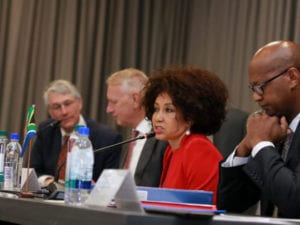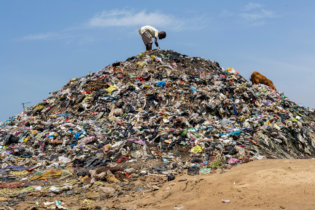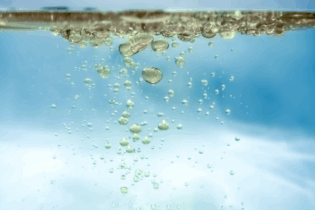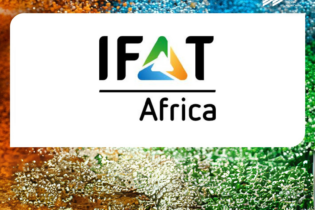Minister of Human Settlements, Water and Sanitation Lindiwe Sisulu , together with the Netherlands Ambassador to South Africa, H.E. Han Peters, officially signed a Blue Deal South Africa Project.
The Blue Deal Project aims to enhance access to sufficient, clean and safe water for all by 2030 and beyond. It also advocates for cooperation in solving local government level water-related problems. Speaking during the official signing of the Deal, Minister Sisulu reiterated the need for collaborative action in addressing the effects of Climate Change and how it intensifies water scarcity. “The focus for the Blue Deal South Africa Project lies in collaborative action, i.e. solving local, water-related problems assisted by the knowledge and experiences of the Netherlands”, said Sisulu. She added that the cooperation includes the exchange of views, identifying mutual interests, ensuring involvement of stakeholders and linking up ideas across institutional boundaries. In agreement, Ambassador Peters said South Africa and the Netherlands have a mutually beneficial relationship on water-related matters dating back to more than 15 years. “We are pleased that the partnership has now officially come into effect. The Blue Deal is also in support of the implementation of the National Water and Sanitation Master Plan”, said Ambassador Peters. He further commended Minister Sisulu on the successful launch of the Master Plan saying that the Dutch Government was looking forward to imparting their knowledge and expertise in the water sector. The Blue Deal Project is based on the National Water and Sanitation Master Plan, National Development Plan (NDP) and the Economic Recovery and Stimulus Plan. The original proposal for the Blue Deal South Africa Partnership was submitted in January 2019 and is expected to be rolled out until 2030, with the first phase ending in 2022.To achieve tangible results, the designated local Blue Deal projects for the period 2019 – 2022 are:
Crocodile River: combating pollution The Crocodile River faces threats of pollution by agriculture, industry and municipalities. The performance of the wastewater treatment plants in the area is not optimal. The challenge to address is to improve the operation of the municipal wastewater management systems to ensure a better quality of effluent being discharged into the river. The envisaged outcome of the project will be an improvement of the quality of the Crocodile River; with an expected positive impact on the 1.45 million people around the river who will benefit from cleaner and more usable water. Vredefort Dome: improvement of water quality of the Vaal River The goal of the project in this regard is improving the water quality of the Vaal River around the UNESCO Vredefort Dome Heritage Site. It is anticipated that the project will improve water quality for about 50 000 people in Parys. Blesbokspruit Ramsar Site Rehabilitation The habitat of over 250 different bird species in the Blesbokspruit wetland is endangered due to the impact of invasive species, Acid Mine Drainage (AMD), poorly operated and maintained Waste Water Treatment Plants, as well as sewer reticulation and storm water systems that are failing. The main objective of the project is restoring the natural environment. Msunduzi River: improvement of water quality The Msunduzi River is an important water source for the densely populated and industrial area of KwaZulu-Natal; mainly around Pietermaritzburg and Durban. The water quality of the river is momentarily very poor. The project aims to align different activities to improve water quality across the institutional boundaries of different governmental and non-governmental organisations, industries and commercial enterprises.






